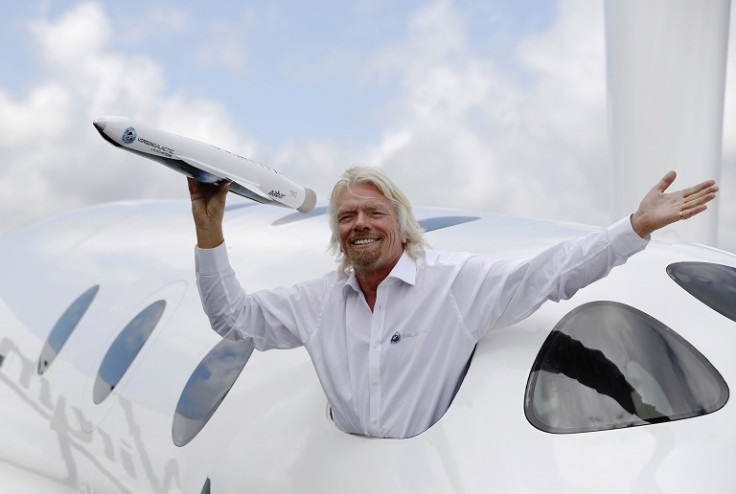Virgin Galactic Passengers Just Miss Going into Space

A report claims defects found in the wings of Sir Richard Branson's Virgin Galactic spacecraft will delay the commercial space flight operation until at least 2015 - but reveals that even when the flights do take off, passengers may technically not be taken into outer space anyway.
A report in the Sunday Times claims to have seen the customer contract Virgin Galactic has drawn up, and in the small print it guarantees to get passengers to an elevation of "at least 50 miles."
While this is sufficient to experience weightlessness, the widely accepted boundary between the Earth's atmosphere and outer space - called the Karman Line - lies at an altitude of 62 miles above the Earth's sea level.
Virgin Galactic said it is using Nasa's 50 mile boundary definition for space, one which was used as far back as the 1960s and as recently as 2005 to award astronaut wings to pilots who flew in the rocket-powered X-15 aircraft.
However, those flying with Virgin Galactic won't be recognised as having travelled in space by the World Air Sports Federation, with world governing body for astronautical world records, unless they pass the Karman Line.
Virgin Galactic CEO George Whitesides told IBTimes UK:
"NASA and the US Air Force have a long tradition of celebrating everything above 50 miles (~80km) as spaceflight, and we look forward to joining those ranks soon as we push onward and upward. We are still targeting 100km. As we have always noted, we will have to prove our numerical predictions via test flights as we continue through the latter phase of the test program. Like cars, planes, and every other type of vehicle designed by humans, we expect our vehicle design and performance to evolve and improve over time."
A decade of development
It was 2004 when entrepreneur Richard Branson first announced that he was investing in what would become Virgin Galactic, making the bold prediction at the time that the world would see commercial space flight by 2007.
Branson said in January of this year that he and his family would make it into space this summer, but that now looks highly unlikely.
Whitesides however was bullish about the prospects of Virgin Galactic's future and said a successful test flight into space would happen within months.
"When SpaceShipTwo reaches space for the first time—which we expect will happen just a few short months from now—it will become one of a very small number of vehicles to have ever done so, enabling us to commence services as the world's first commercial spaceline; our current timetable has Richard's flight taking place around the end of the year."
Cracks
The Sunday Times report also claims that engineers discovered defects on the wings of the launch plane for the project - called WhiteKnightTwo - which is why it had been grounded since January.
WhiteKnightTwo is the twin-fuselage aircraft which will carry SpaceShipTwo as high as 48,000ft before the six-passenger spacecraft blasts into the upper atmosphere.
Sources speaking to the newspaper said the defects were "multiple cracks in the wings" but Virgin Galactic is adamant that there are no cracks in the wings.
A spokesperson for the company said: "WhiteKnightTwo is undergoing it annual inspection, a mandated procedure for most aircraft in the United States which takes each vehicle out of flight for the duration of the inspection. There are NO cracks in the wings."
The spokesperson said the engineers working on the launch craft used the downtime to analyse and repair some "adhesive imperfections which are often produced in the composite manufacturing process" and after further testing found the imperfections had a negligible impact on the vehicle's performance.
"This aircraft is one of a kind and we tend to have a more cautious than industry-standard approach," the spokesperson said.
All the pieces in place
Following a successful test flight in California on 13 January, Branson said: "I couldn't be happier to start the New Year with all the pieces visibly in place for the start of full space flights. 2014 will be the year when we will finally put our beautiful spaceship in her natural environment of space."
So far more than 700 people have signed up for a trip on SpaceShipTwo, each paying $240,000 (£142,000) up front to reserve their seat. Virgin Galactic earlier this year looked to attract the newly-minted bitcoin millionaires by accepting the cryptocurrency for a ticket on the flight.
Among those thought to have signed up for the trip already include Tom Hanks, Brad Pitt, Leonardo DiCaprio and Stephen Hawking.
© Copyright IBTimes 2025. All rights reserved.






















